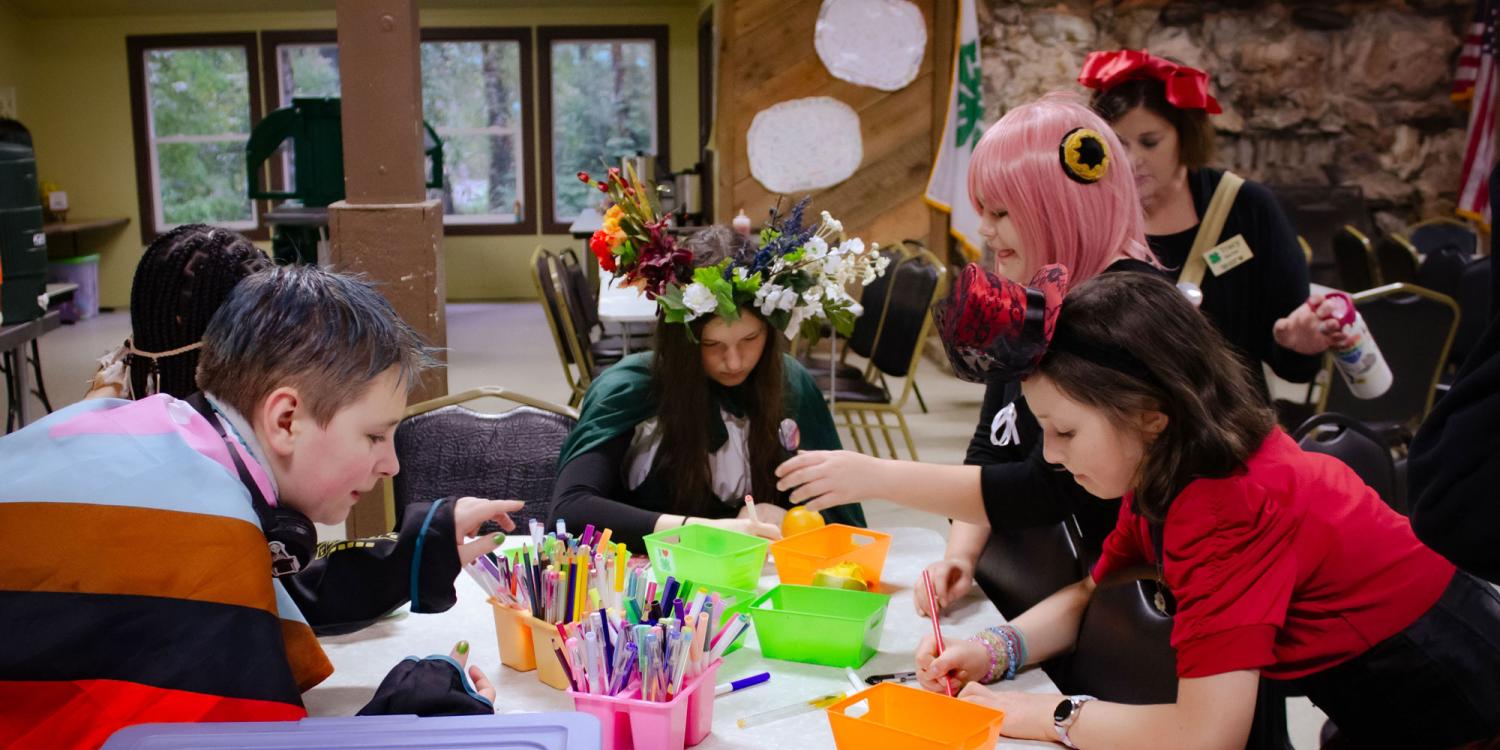
In an effort to serve youths from underserved populations with identities that intersect with “geek culture,” Oregon State University Extension Service 4-H in Marion County created the Questing Clovers Retreat, an inclusive overnight camp held in October 2023 at the Oregon 4-H Conference and Education Center in Salem.
Recruitment for the retreat targeted youths who identify as socially anxious, LGBTQ+, people of color and/or neurodivergent. The retreat goals were to:
- Help youths develop lasting connections.
- Grant youths opportunities to explore various interests.
- Encourage youths to engage with established 4-H programs in their county/state.
Efforts to make this camp cross-departmental included the efforts of three Extension programs: 4-H, Outdoor School and Open Campus, along with the OSU College of Earth, Ocean, and Atmospheric Sciences.
Faculty and staff, with youth leaders, began monthly planning sessions in January of 2023 to develop a gamified gender-inclusive geek-themed event. All youth leaders successfully completed over 20 hours of leadership training where they acquired the skills and knowledge necessary to inspire and guide others in various capacities.
The camp’s programming featured a variety of accommodations including mobility assistive devices, sensory rooms, a gender-affirming dress code, gender-inclusive restrooms and cabins, name tags with pronouns, and a staff trained in working with gender-expansive youth. Efforts for making a camp focused on belonging began with the inception of the camp.
The retreat hosted 65 youths, with 10 acting as camp leaders. Campers represented 12 Oregon counties and two youths from Washington. At camp registration, 17 youths marked their pronouns as they/them, 19 as she/her, and 29 as he/him.
There were 12 hands-on educational sessions and learning “quests” centered upon leadership, empowerment. The camp featured a cosplay competition and community activities such as team-builders, cabin debriefs, and times for youth to connect with others of similar interests.
The overall emphasis to provide programming that featured a variety of activities that cater to different interests, abilities and preferences.
Student leaders designed the quests and helped lead quest stations focused upon five different guilds: leadership, health and wellness, technology, arts and natural sciences. These leaders provided opportunities for youths to voice their interest in activities that were timely and relevant to campers.
The goal of making lasting connections was demonstrated by 84% of the youth respondents to a post-event survey selecting “true or very true” that they made new friends at camp. Additionally, 88% of respondents replied “true or very true” to the question, “Did attending camp give you the chance to try new things?”
The third goal – to promote and connect youth to established 4-H programs in their county/state – bore out in the surveys. Sixty-eight percent of attendees had never been to a 4-H camp prior to Questing Clovers. When responding to the question “How likely is it that you’d recommend this camp to friends?” 82% rated the camp at least a six on a scale of one to nine.
Overall, the retreat accomplished the goal of making a camp that felt inclusive and accessible to attendees. Additionally, 18 youths have shown interest in leadership for the 2024 retreat.